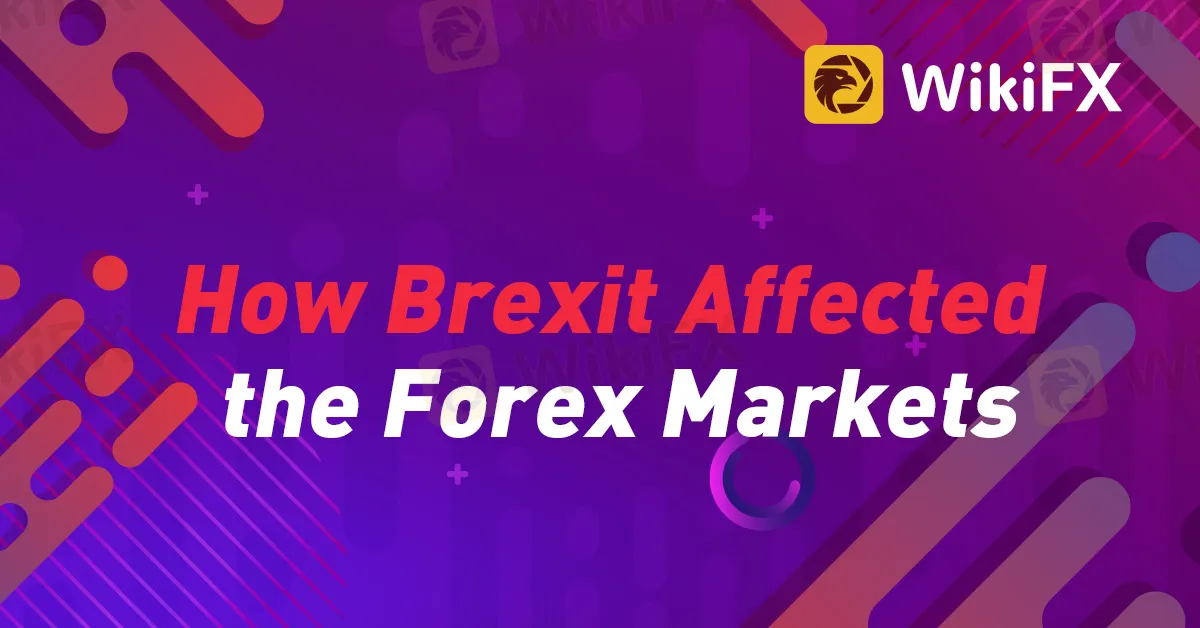简体中文
繁體中文
English
Pусский
日本語
ภาษาไทย
Tiếng Việt
Bahasa Indonesia
Español
हिन्दी
Filippiiniläinen
Français
Deutsch
Português
Türkçe
한국어
العربية
How Brexit Affected the Forex Markets
Abstract:The United Kingdom's decision to leave the European Union, commonly known as Brexit, had a profound impact on various industries, including the forex market. The uncertainty surrounding the negotiations and subsequent outcomes led to significant volatility and changes in currency valuations.

The United Kingdom's decision to leave the European Union, commonly known as Brexit, had a profound impact on various industries, including the forex market. The uncertainty surrounding the negotiations and subsequent outcomes led to significant volatility and changes in currency valuations.
Immediately following the Brexit referendum in 2016, the British pound (GBP) experienced sharp declines against major currencies such as the US dollar (USD) and the euro (EUR). The uncertainty surrounding the future relationship between the UK and the EU led to increased market volatility and a loss of investor confidence in the pound.
As negotiations progressed, the forex markets reacted to every development, with currency pairs involving the pound experiencing heightened volatility. Traders closely monitored political statements, economic indicators, and negotiation updates, adjusting their trading strategies accordingly.
Brexit also impacted the euro, especially for currencies closely tied to the EU economy. The euro experienced fluctuations as investors assessed the potential implications of Brexit on the European economy and the future stability of the EU. Currency pairs like EUR/GBP were particularly affected by Brexit-related news and market sentiment.
Moreover, regulatory changes accompanied Brexit. The UK's withdrawal from the EU resulted in the Financial Conduct Authority (FCA) taking over the regulation of the UK financial markets. These changes had implications for forex brokers operating in Europe, as they needed to adapt to new regulations and licensing requirements.
Navigating the forex markets during the Brexit period required careful analysis, risk management, and staying updated with the latest developments. Traders had to be prepared for sudden market movements and adjust their trading strategies accordingly.
As a trader, it is essential to access reliable information sources to stay informed about Brexit and its impact on the forex markets. WikiFX provides up-to-date news and analysis on market events, including the latest updates on Brexit and its implications for traders.

Disclaimer:
The views in this article only represent the author's personal views, and do not constitute investment advice on this platform. This platform does not guarantee the accuracy, completeness and timeliness of the information in the article, and will not be liable for any loss caused by the use of or reliance on the information in the article.
Read more

Space World Capital - The Forex Broker You Should Not Partner with
Explore this guide to know the scam of Space World Capital, which does not hold a regulatory license to operate forex business.

Crypto Craze Fizzling Out? Here is Why
The Crypto Craze among users is fading out. The wave of Cryptocurrency has slowed down. But what are the major reasons why this has happened?

Social Trading Goes Mobile at M4Markets
A new mobile application for social trading has been launched through a collaboration between brokerage firm M4Markets and fintech provider Brokeree Solutions

ACY Securities Expands Crypto CFD Offering with 24/7 Trading Access
ACY Securities, a global broker specialising in CFD trading across multiple asset classes, has expanded its cryptocurrency offering by introducing 10 new digital currency CFDs and enabling 24/7 trading access across all its supported platforms
WikiFX Broker
Latest News
WikiFX Gala Night Malaysia Concludes Successfully
IG Group Unlocks Over £425 Million amid a Capital Reduction
Elon Musk's xAI raises $10 billion in debt and equity as it steps up challenge to OpenAI
European Central Bank's tightening cycle is done,' chief economist says
ACY Securities Expands Crypto CFD Offering with 24/7 Trading Access
Stock futures fall after S&P 500 notches new record to cap winning second quarter: Live updates
Revelation: Makeup Artist, Social Media Influencer Involved in INR 1.62 Cr Forex Trading Scam
Social Trading Goes Mobile at M4Markets
CNBC Daily Open: Keep calm and carry on, investors
Capital.com Strengthens UK FinTech Ties with Key Memberships
Currency Calculator


